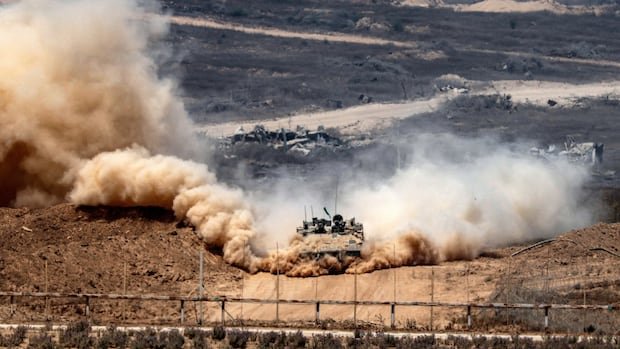Amidst 22 months of conflict, Palestinians are enduring harrowing conditions on the fringes of the Mediterranean Sea, seeking refuge in tents or sheltering amidst ruins. Faced with the perils of gunfire and Israeli airstrikes, approximately two million individuals are crammed into less than 100 square kilometers, with their situation poised to worsen.
Najla Abu Jarad and her family find themselves residing on the outskirts of Gaza City, which is the next focus of Israel’s military actions. Expressing her uncertainty, the 60-year-old questions the future, pondering where they could possibly go within Gaza.
The United Nations reports that a significant portion, 86%, of the region is either under Israeli military control or subject to evacuation mandates. Israel’s recent decision to extend its military presence has sparked concerns and tensions both domestically and internationally.
Prime Minister Benjamin Netanyahu’s administration is contemplating a complete Israeli occupation of Gaza, aiming to neutralize Hamas and secure the release of Israeli hostages. However, this ambitious plan faces resistance and skepticism from various quarters, including within Israel’s military and political circles.
As debates intensify, the specter of a full-scale occupation looms, potentially necessitating the mobilization of additional reserve troops. The proposed military campaign, envisaged to last several months, is met with both support and opposition, signaling a complex and contentious path ahead.

